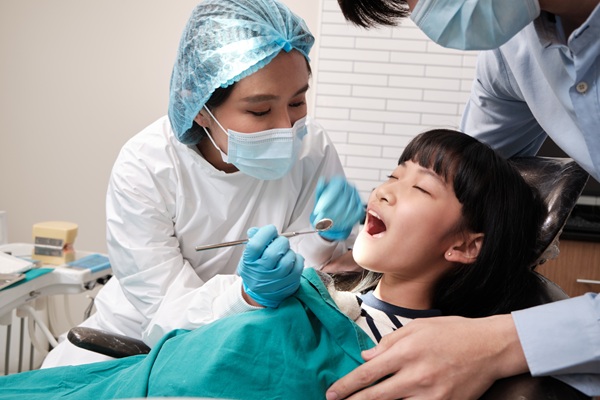5 Common Causes of Intense Tooth Pain

Tooth pain has the potential to ruin your day. Especially painful tooth sensations might make it impossible to work, learn or even do simple chores around the house. If your tooth pain is particularly harsh, your thoughts will immediately turn to what you ate, drank and did in the hours and days preceding this unfortunate event.
Your mind will race through everything you experienced as you attempt to determine what is causing the nasty oral pain. Here is a quick look at the top five most common causes of harsh tooth pain and how a dentist can help get your mouth back to normal.
1. Faulty/Aged Dental Work or Loose Fillings
Fillings, crowns and other dental restorations are designed to last years if not decades. However, such restorations are likely to crack or even fall out of the mouth at one point or another. If such a break occurs, the tooth pain might prove unbearable as the nerves are re-exposed. Meet with us as soon as possible to restore or replace the dental restoration.
2. Worn Tooth Enamel
Tooth enamel wears as time progresses. Eating, drinking and everyday living cause gradual enamel wear. Teeth become more sensitive to hot and cold temperatures as enamel wears away. This occurs as the protective mineral gradually dissipates from the surface of the teeth.
Enamel wear is usually the result of faulty oral hygiene and excessive sugar consumption. Meet with your dentist to determine the best way to reinforce your tooth enamel to reduce the chances of subsequent damage.
3. A Cracked Tooth
If your tooth cracks, you will likely feel a strong sensation of pain. A cracked tooth can result from biting down on something hard to harsh contact curing sports, an auto accident and other events. If the sensitive nerves within the tooth are exposed, the pain will prove quite severe.
If your tooth is cracked, the dentist will position a crown covering molded to your unique mouth to seal the crack. The purpose of this crown is to prevent future pain and enhance your smile.
4. A Cavity
Cavities that an individual neglects for months or years will become painful. Enamel can wear down to the point that the nerve within the tooth faces exposure. This cavity will likely make its presence known sooner or later in the form of a sharp tooth pain.
It will prove especially uncomfortable when biting on something hard, hot or cold. If we do not fill the cavity, it will lead to an infection.
5. A Dental Abscess
Dental abscesses prove quite uncomfortable. When an abscess forms in the mouth, it will also include infected tooth pulp that causes considerable pain. This phenomenon occurs when a cavity does not receive treatment for an extended period of time.
The infection generates swelling, throbbing, redness and a nasty taste. Fortunately, we can treat a dental abscess with drainage, root canal, antibiotics and a sealing of the area to eliminate the abscess and any pain.
Request an appointment in our Irvine dentist office here: https://www.lightbreezedental.com.
Recent Posts
An immediate visit to an emergency dentist becomes necessary when severe tooth pain or infection disrupts your comfort and overall quality of life. This dental professional provides immediate evaluation and relief, particularly when a root canal is required to preserve a damaged or infected tooth. Root canal treatment from an emergency dentist can help alleviate…
Oral injuries that lead to severe bleeding in the mouth count as dental emergencies. Blood clots have a more challenging time forming in the mouth, and deep cuts in the mouth can lead to significant blood loss without the care of an emergency dentist. Waiting up to a few weeks for a regular appointment is…
Wondering when you should see an emergency dentist? Read on to learn more. Regular dental care can prevent emergency dental treatment. Unfortunately, dental emergencies do happen unexpectedly, even if you brush and floss regularly. In such cases, it is a great idea to visit an emergency dentist immediately.Many people do not know whether their dental…
An emergency dentist may be necessary. The tissue that makes up your gums does not grow back, so it can be scary in the unlikely event that you get lacerated on your gums. To clarify, a cut that comes from everyday activities such as flossing, brushing your teeth too vigorously, or biting down wrongly on…


